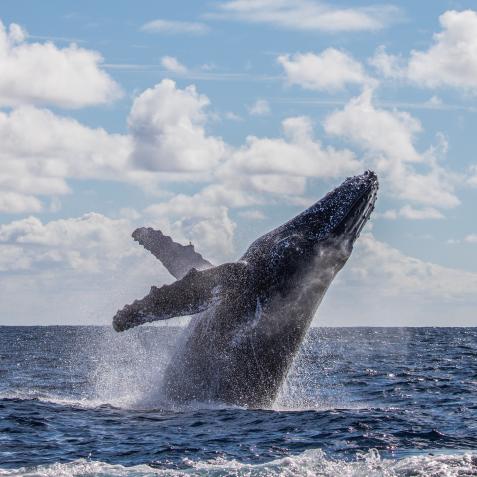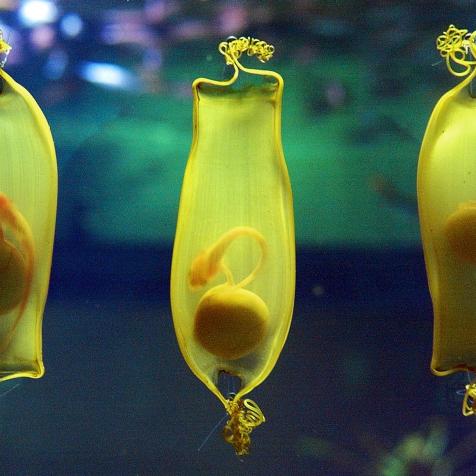
gorodenkoff
Curiosity Daily: Neanderthal Roommates, Sea Dragons, Hidden Egyptian
Hear about a new archeological site that suggests humans arrived in Europe 10,000 years earlier than previously thought, what a giant fossil could teach us about the fearsome sea dragon, and a massive archeological find in Egypt!
September 01, 2022
European humans.
- Homo Sapiens May Have Reached Europe 10,000 Years Earlier Than Previously Thought by Bruce Bower
- https://www.sciencenews.org/article/homo-sapiens-humans-europe-migration-earlier-france-rock-shelter
- Modern Human Incursion into Neanderthal Territories 54,000 Years Ago at Mandrin, France by Ludovic Slimak, et al.
- Apidima Cave Fossils Provide Earliest Evidence of Homo sapiens in Eurasia by Katerina Harvati, et al.
Dragons of the sea.
- Huge Prehistoric 'Sea Dragon' Fossil Discovered in U.K. Reservoir by Rachel Elbaum
- Ichthyosaur Fossil Reptile Group by Encyclopedia Britannica
- Rutland Sea Dragon: How Remarkable Ichthyosaur Fossil Was Protected by Greig Watson
- “The World-Renowned Ichthyosaurus”: A Nineteenth-Century Problematic and Its Representations" by John Glendening
Lost city.
- Archaeologists in Egypt Discover 3,000-Year-Old ‘Lost Golden City’ by Livia Gershon
- Renowned Archaeologist Zahi Hawass Announces Discovery of Luxor’s ‘Lost City’ by Mustafa Marie
- The Rise and Fall of Zahi Hawass by Joshua Hammer
- 'Lost Golden City' Found in Egypt Reveals Lives of Ancient Pharaohs by BBC News
Follow Curiosity Daily on your favorite podcast app to get smarter with Calli and Nate — for free! Still curious? Get exclusive science shows, nature documentaries, and more real-life entertainment on discovery+! Go to https://discoveryplus.com/curiosity to start your 7-day free trial. discovery+ is currently only available for US subscribers.
Next Up
Curiosity Daily Podcast: Sex! And COVID, The Biggest Comet Ever, Wave of the Future
Today, you’ll learn about the surprising sexual implications of the COVID pandemic, if the biggest comet ever discovered is going to end the world and how the natural power built into the ocean could, one day, power a bunch of stuff on land.
Curiosity Daily Podcast: Anti-Hangover Pill, Perks of Whale Poop, Found Dino Tracks
A Swedish company has created a new anti-hangover pill that reduces the short-term effects of drinking, whale poop is helping our ocean’s ecosystems, and a recent drought in Texas revealed the footprints from a dinosaur over 100 million years ago.
Curiosity Daily Podcast: Why Symmetry Wins, Solar-Covered Canals, Plants on the Moon
Today, you’ll learn about why symmetry dominates the natural world, how it may be possible to conserve water using solar panels, and why growing vegetables might soon involve a trip to the Moon.
Curiosity Daily Podcast: Romanesco Fractals, Dolphin Names & Evolution vs. Mating
Learn about evolutionary compromises; the fractals of Romanesco cauliflower; and dolphins that learn each other’s names.
Curiosity Daily Podcast: Pee and Seagrass, Heart Sound Maps, Modified Mosquitos
Today we talk about how crystallizing human urine can help save seagrass, a new AI program that can detect early signs of heart disease, and how mosquitos can be used to vaccinate against malaria.
Curiosity Daily Podcast: 16 Psyche, Xenotransplantation, Ocean Waves Become a Rave
Today, you’ll learn about a metallic object in space that might be worth seven hundred quintillion dollars, how genetically engineered pig hearts could save tons of human lives, and how bioluminescent waves are putting on trippy light shows in the world’s oceans.
Curiosity Daily Podcast: A Surprising Amount of Scientific Research Happens at the Zoo
A lot of science takes place at the zoo. Dr. Rachel Santymire, Director of the Davee Center for Epidemiology and Endocrinology at the Lincoln Park Zoo in Chicago, discusses the animal research going on both behind the scenes and out in the wild. She also explains what animals can tell us about our environment, including her work with the black-footed ferret recovery project.
Curiosity Daily Podcast: Scientific Method Inventor, America’s First Beach, and How Many Faces You Can Recognize
Learn about the man who invented the scientific method; the story of America’s first beach; and how many faces the average person can recognize.
Shark Week: The Podcast – The Life and Life Cycle of Sharks
Dive in with marine biologist and shark expert Luke Tipple as he discusses the evolution and life cycle of a shark from mating and birthing.
Curiosity Daily Podcast: “Breaking the Seal” Myths, Dine Under the Sea in the Maldives, and Tardigrade Superpowers
Learn about how researchers could tap into a tardigrade superpower to protect medicines and vaccines; the Ithaa Undersea Restaurant in the Maldives where you can dine with the fishes; and whether “breaking the seal” is a real thing when you’re drinking.














